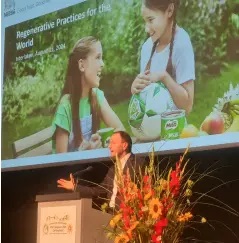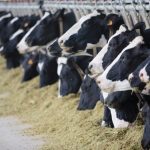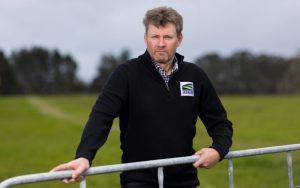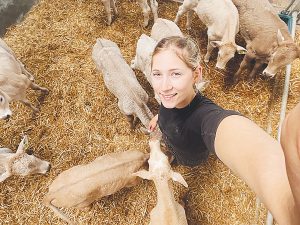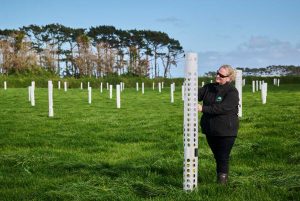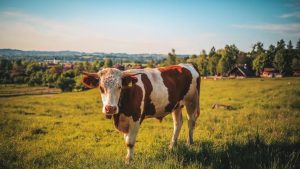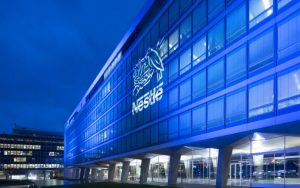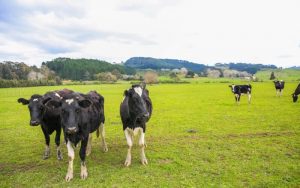
There is nothing quite like hearing from a country’s farmers on the way they are governed, financed (i.e. subsidies) and perceived by their population, to understand our own opportunities deeper.
I was excited to spend 10 days in Switzerland as part of the International Federation of Agricultural Journalists Congress as it’s the home of our largest supplier of New Zealand milk, Nestlé, who have been making loud signals on their expectations of our small, unsubsidised island nation to continue to supply them.
As a critical journalist I used every opportunity for conversation to grasp an understanding of their thoughts on our proposed gene-editing regulation changes, and their definition of regenerative agriculture to better inform the discussion here at home.
The prequel to the story began in a trendy bar in London as young (under 40) expat Kiwis, working in multinational agriculture and food companies, came together to meet me for a drink and discuss how they are seeing the major trends from abroad. Quotes like “New Zealand has missed the regenerative boat,” and “NZ’s current political narrative of undoing environmental regulations is having a negative taint in our markets,” had me worried and intrigued but not surprised.
We touched down in the cosmopolitan city of Geneva, home to the United Nations but also a transit population, where half the workers live in France, as it is cheaper to travel across the border to work each day. This was my first glimpse of the desire to earn and invest in Swiss francs, the most stable currency in the world and a safe haven of international investment.
In the academic literature of “social licence” they explain how higher levels of economic security and an increase in standards of living from a post-industrial knowledge society such as Switzerland leads to a growing emphasis on the values of its people who give high priority to free choice and mass demands for liberalisation. This becomes increasingly costly and detrimental to economic effectiveness, of which Switzerland is a classic case in point.
Our tour guide, Alex, was the communications director for the Swiss Farmers’ Union who shared the hot topic among farmers that Switzerland’s traditional exercises of direct democracy in action called their initiative rights.
It’s a public petition system where 100,000 signed petitions can enact a national referendum on a topic. The current referendum was on increased protected area for biodiversity which its opponents say was an “extreme and inefficient” way to protect biodiversity calling for farmers to lock up 30% of their land for protected habitats.
Those in favour of the initiative, such as BirdLife who we heard from at the congress, said the open pastures policy of the government paying farmers subsidies to keep farmland in the Alps clear from encroaching forests was a way for their food marketers and tourism operators to maintain the Heidi-like scene in the mountains. This is the third referendum they have had in 12 months, stopping the nation every quarter. The next one in line is to ban animal agriculture from Switzerland.
So it’s no surprise they have the Agricultural Information Service, funded by 80 organisations from the agriculture and food industry, whose sole job is to educate schools and the general public about farming. Our trip to Agroscope (the NZ equivalent of AgResearch) was an informative tour of how the environment they farm in is forcing their agriculture research and development.
They research management solutions for a future of reduced chemical use and greenhouse gas emissions. I asked one of the principal scientists if they were preparing for any changes to their restriction of gene-editing technologies. He said that would be a long way off for the EU as their sole focus for carbon removal and less chemicals
is on soil health – remember there aren’t incentives to plant out their hill country in trees! We visited Nestlé’s Research and Development in Lausanne to meet with Jeroen Dijkman, the founding head of the Nestlé Institute of Agricultural Sciences. They explained how dairy is
31% of their carbon footprint and that is why they are coming up with their own agronomic solutions to put the science behind defining regenerative agriculture to underpin achieving their procurement targets of sourcing 50% regenerative milk by 2030 and 100% by 2050. They are validating solutions on their test farms such as the Nestlé-funded trial in Taranaki.
We were shown through their newly opened laboratory where they had gas chambers to mimic the anaerobic fermentation of rumen microbiomes with different feeds and the enteric methane produced – no GMO or gene-edited feeds are being trialled.
We were shown their educational regenerative area about the importance of hedgerows for beneficial insects and the significance of soil cover and porosity for moisture retention. I asked Jeroen about the current discussion on NZ’s gene-editing regulation and received a careful reply: “There will always be a market for New Zealand dairy.” Read into that what you will.
In June 2024, Nestlé was a foundational member of AgroImpact where they provide participating farms with climate premiums calculated based on their level of carbon reduction. We visited a farmer who was a part of the project and through translation I was able to discover that his carbon storage capacity was measured by a ruler and he didn’t need to pay the premium back when he released carbon into the atmosphere when he lifted the “lowcarbon” sugar beet for Nestlé.
They looked at me sideways as to why it would be an individual farmer’s responsibility when you are helping Switzerland “inset” its carbon from the airlines in their soil. Then I got to ask my question to former Nestlé CEO, Mark Schneider:
“I represent New Zealand dairy farmers here and Nestlé is one of our largest suppliers. You talk a lot about the transition (to regenerative) and with New Zealand being in the bottom three in the world for agriculture subsidies, and it doesn’t look like that will change, what is the role of Nestlé to fund that transition [such as through premium payments] or would you see that as an expectation on our government to fund this through subsidies?”
He replied, “What you will see in other countries is a healthy mix. We are not shying away from carbon initiatives or taking the lead, but it’s a systemic problem across the value chain and we share responsibility. Especially in countries where agriculture is large, the government has invested interest like here with dairy in Switzerland you see us step up, but also the government, so everyone has skin in the game.” Switzerland is in the top three countries in the world for agriculture subsidies to the tune of over $3 billion per year.
According to OECD data, subsidies in the EU account for less than 20% of farm income. In Switzerland, the average is 62.7% with 543,000 dairy cows. Even though this is the home of our largest supplier’s global headquarters, they are sourcing, producing and selling Nestlé consumer goods within their “gene-editing” friendly markets such as the United States. So Fonterra’s new strategy to strengthen their ingredients business model of a commodity product tells me that gene editing and regenerative are now the ticket to remain in the commodity game.
You can now read the most important #news on #eDairyNews #Whatsapp channels!!!
🇺🇸 eDairy News INGLÊS: https://whatsapp.com/channel/0029VaKsjzGDTkJyIN6hcP1K
